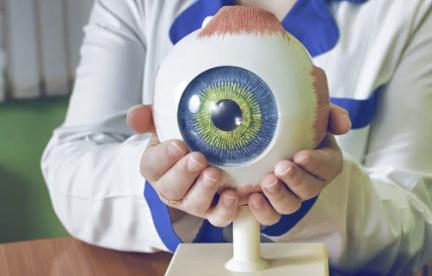When there is cloudiness in the lens, which needs to be removed to clear the lens for improved vision, this surgery is called cataract surgery. Our lens is made up of protein and water; sometimes, proteins seize up and cause cloudiness in the lens, making it yellow-colored, known as cataracts. A few medical complications, such as injuries, medications, and eye surgeries, may cause cataracts. Age is also a significant factor in cataracts, mainly in elders, as it can cause blindness.
If the person has problems doing usual activities such as watching television, reading books, or driving a car, surgery is recommended to get a clear lens. Cataract surgery is sometimes done to manage and treat other eye issues, such as macular degeneration, which is age-related nephropathy due to diabetes.
Tips for elders after cataract surgery:
After surgery, a patient is kept under observation for half an hour; however, some are instructed by the surgeon before discharge for better recovery. A few tips are stated below.
* Eyedrops
Doctors suggest eyedrops for elders, so they must be used as the doctor says. These drops help the eyes to avoid infection.
* Eye shields
Doctors suggest glasses or spectacles prevent eyes from damage and radiation or lights, so they must wear them all day. Also, wear an eye protector recommended by a doctor before sleeping.
* Avoid Rubbing
Do not rub your eyes or ask your elders to avoid pressing or rubbing them as it may damage the eyes.
* Avoid Bending
You must take care of your elders and strictly make them follow the guidelines. Do not let them bend over from the waist to collect anything from the floor, as it may pressure the eyes. Avoid driving a car after surgery, and prevent your elders from lifting heavy objects or doing anything strenuous for at least two weeks after surgery.
* Households tasks
The elders can walk, climb stairs, or do light household tasks that do not involve lifting heavy objects or bending down.
* Prevention from dangers
Elders need to avoid dust, pool water, grime, air, and seawater as direct water hitting the eyes can cause severe damage hence avoid showering and baths in the pool after surgery and put a shield before taking a bath and prevent the eyes to get direct water contact with them as this may cause infection, or irritation.
* Avoid stress
After surgery, they must have a blurry, cloudy, or fuzzy vision for a few days or weeks, but it will get better as it is a normal process after surgery, so there is no need to worry about that.
* Avoid Overstate
Do not watch television for hours, relax your eyes, and do not focus on a dim light to read and read for a few minutes, not hours after surgery. Also, avoiding TV screens and reading for a few days after surgery is better. Even coughing, vomiting, sneezing, or laughing may cause damage after surgery, so one needs to be careful.
Conclusion
A cataract occurs mainly among elders or after the age of 80. Blurred vision is a symptom they mostly feel, which causes issues doing daily tasks such as driving, watching, and reading. After surgery, the elders may have blurred vision for a few days, so do not stress over it; prevent eyes from direct contact with water, dust, lights, and wind. Wear glasses as suggested by the doctor and use shields before sleeping. Avoid putting pressure on the eyes by bending to pick up objects, doing heavy work, or lifting heavy objects; avoid driving and rubbing the eyes.

